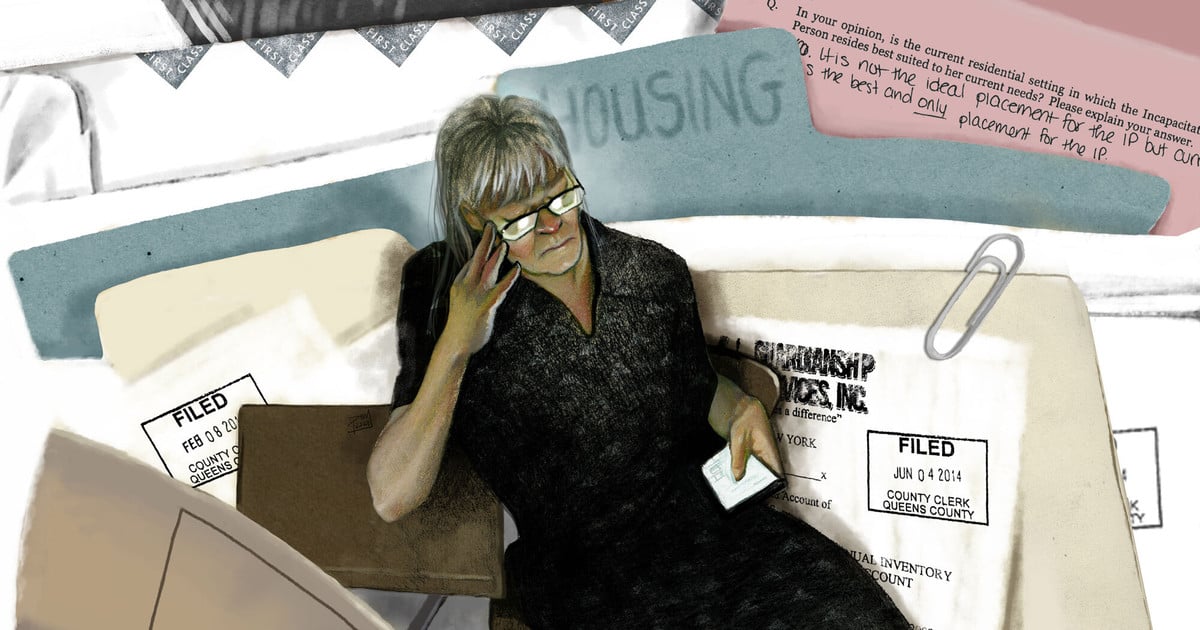The temperature was plummeting on Thanksgiving eve when Judith Zbiegniewicz wrapped herself in a blanket, picked up her phone and tapped out yet another plea for help to New York Guardianship Services. It was 2018, and for the previous five years the company, whose slogan is “caring that makes a difference,” had overseen nearly every major decision in her life, as it did for hundreds of New Yorkers deemed incapable by the courts of looking after themselves.
The organization had repeatedly maintained in court filings that Zbiegniewicz, who was 65 and suffered from depression and anxiety, was doing well under its supervision and that the Queens apartment it had placed her in was the “best and only place for her.” Each year, court examiners reviewed the reports and a judge signed off on their assessments.
In truth, though, Zbiegniewicz lived in squalor on the second floor of a dilapidated home whose roof had partially collapsed. She’d complained when her mattress teemed with bedbugs and when rats gnawed the legs of her kitchen chairs. Yet every month, her legally appointed guardian had taken $450 in compensation from her bank account as her living conditions deteriorated.
Now, with no heat and a cold front barreling down on the city, she stuffed bath towels under a door to block the draft and again appealed to NYGS.
“While you and every one at the guardianship are home in a warm house and having Thanksgiving dinner think of me. In a apartment without heat and can’t,cook. And rats in the kitchen,” she wrote on the evening of Nov. 21, 2018. “So much for where caring makes a difference.”


